Microbiota decussata, Russian Arborvitae
…But it must be that I,
that animal, that Russian, that exile, from whom
the bells of the chapel pullulate sounds at
heart…
-Wallace Stevens
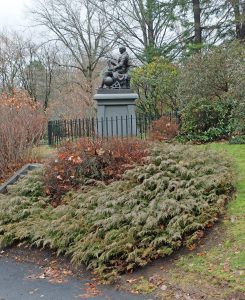 Perhaps at Mount Auburn, thoughts from the above lines might recall Svetlana Boym, even though Stevens’ words are metaphorical. However, herein allow the transitional thoughts to rather delve into a plant native to Russia, Microbiota decussata, Russian Arborvitae growing within our landscape. Not unsurprisingly, the largest country in the world is native to numerous planting choices used here, Scilla siberica occurs only in the wild in southern Russia. Additionally, regardless of their somewhat confusing common names, Norway spruce, Dahurian larch, Korean pine, Manchurian birch, Manchurian maple, Manchurian walnut, Manchurian fir and Caucasian fir among others are Russians also represented in our living collection.
Perhaps at Mount Auburn, thoughts from the above lines might recall Svetlana Boym, even though Stevens’ words are metaphorical. However, herein allow the transitional thoughts to rather delve into a plant native to Russia, Microbiota decussata, Russian Arborvitae growing within our landscape. Not unsurprisingly, the largest country in the world is native to numerous planting choices used here, Scilla siberica occurs only in the wild in southern Russia. Additionally, regardless of their somewhat confusing common names, Norway spruce, Dahurian larch, Korean pine, Manchurian birch, Manchurian maple, Manchurian walnut, Manchurian fir and Caucasian fir among others are Russians also represented in our living collection.
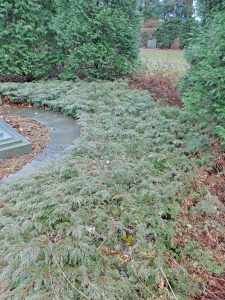 Microbiota decussata, Russian Arborvitae unlike the diverse genera mentioned above is a monotypic genus, that is a genus with only one species, Ginkgo and Metasequoia are other examples. Russian Arborvitae is native to a small region of Pacific Russia near Vladivostock, hence able to survive winter temperatures of minus 30 to minus 40 degrees. First recorded just under one-hundred years ago, it was not until the mid-1970’s that this began to be horticulturally distributed throughout Europe and later into North America.
Microbiota decussata, Russian Arborvitae unlike the diverse genera mentioned above is a monotypic genus, that is a genus with only one species, Ginkgo and Metasequoia are other examples. Russian Arborvitae is native to a small region of Pacific Russia near Vladivostock, hence able to survive winter temperatures of minus 30 to minus 40 degrees. First recorded just under one-hundred years ago, it was not until the mid-1970’s that this began to be horticulturally distributed throughout Europe and later into North America.
This prostrate, evergreen shrub is only a bit over one-foot high, but may spread six-to-fifteen-feet wide at maturity. The flat, fine-textured, paired, scale-like leaves are pale green at first, but turn red-brown/bronze or purple-brown during the autumn and winter. Its branch tips are characteristically nodding, which might help distinguish it from cultivars of low-growing, spreading junipers.
This fairly fast-growing, graceful, cold-hardy, evergreen shrub will tolerate sun or shade and has received the Royal Horticultural Society’s Award of Garden Merit in 1993, and the Worcester County Horticultural Society’s Cary Award in 1998. On a future visit to Mount Auburn look for some of our Russian Arborvitae on Central Avenue, Spruce Avenue, Walnut Avenue, Halcyon Avenue, Story Road, Spruce Knoll, and other locations.
…Whispering like a garden of secrets.
-James Tate
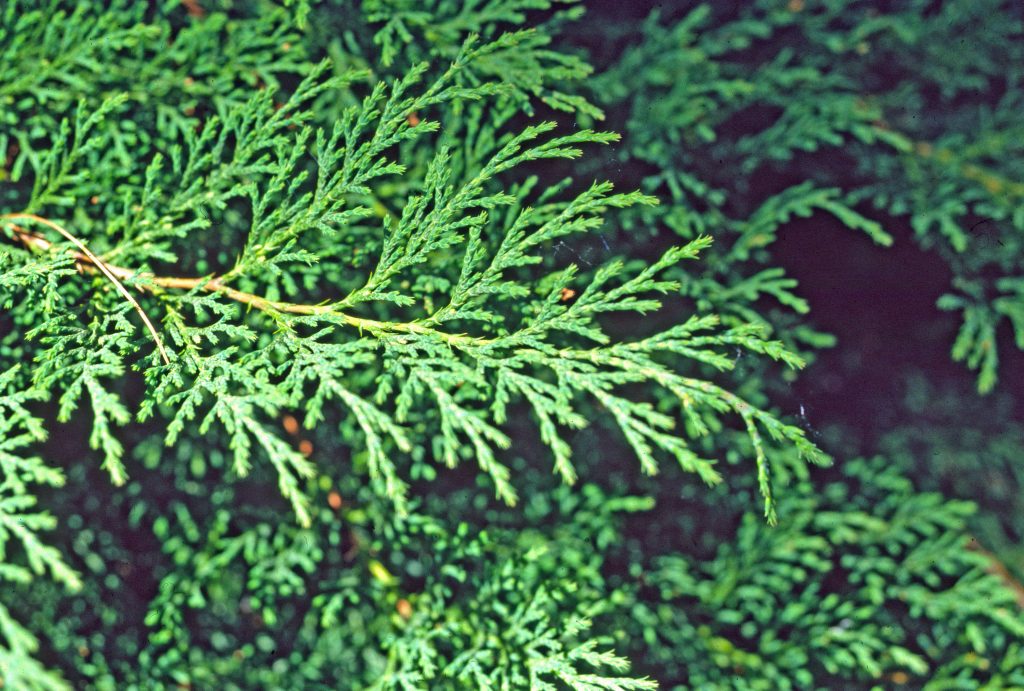


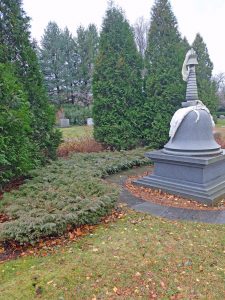
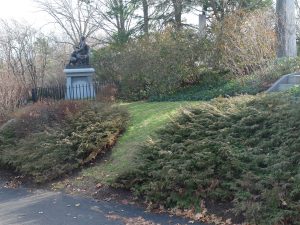
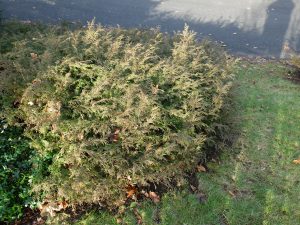
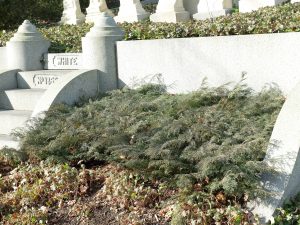
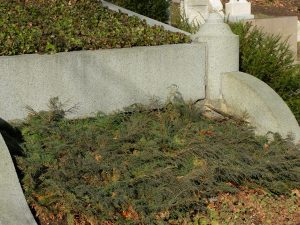
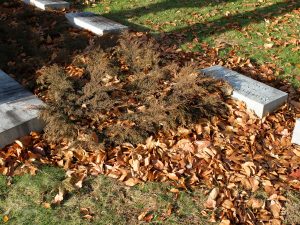
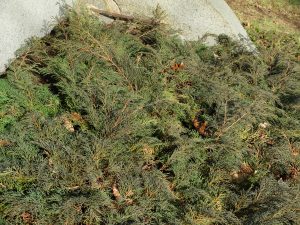
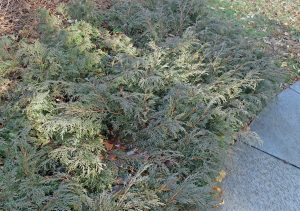
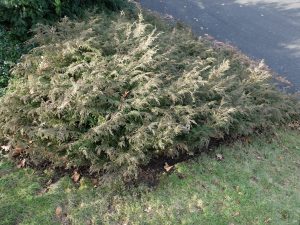
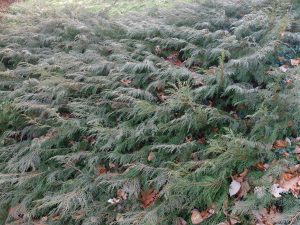
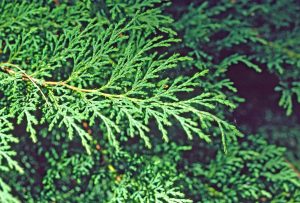
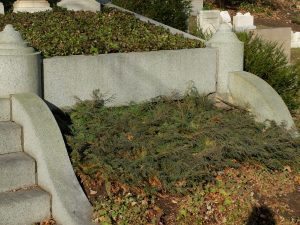
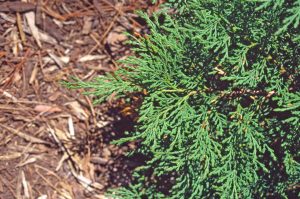
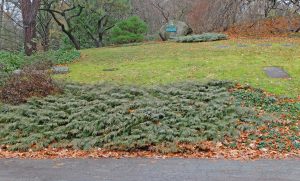
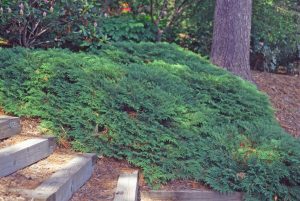
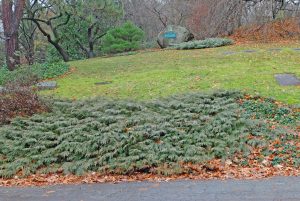
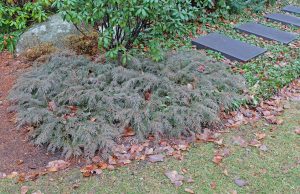
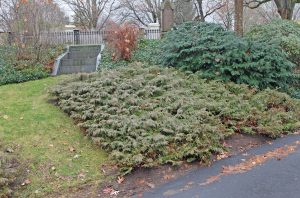
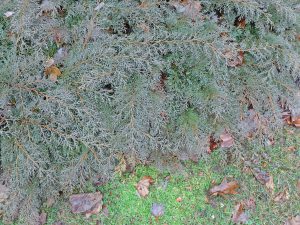
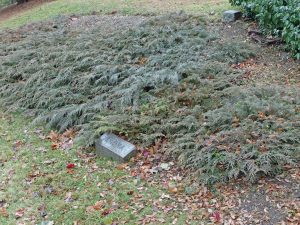
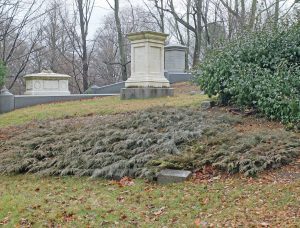
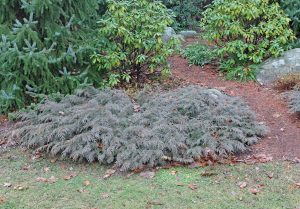
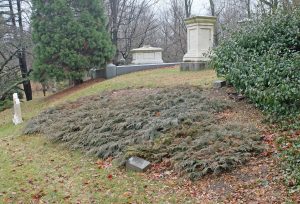
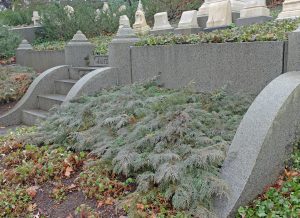
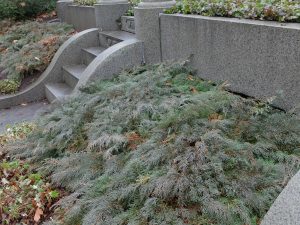

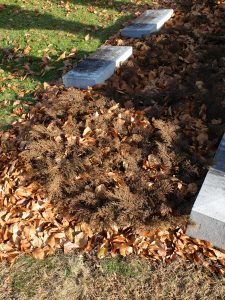
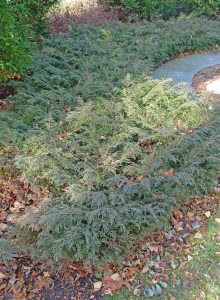
Leave a Reply